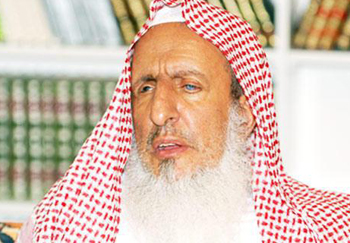Jeddah, May 1: The government of India and its diplomatic missions in the Gulf Cooperation Council (GCC) States have begun elaborate preparations for the massive evacuation of their nationals stranded or needing to return once the lockdown travel restrictions are lifted.
The Indian missions in Saudi Arabia, the United Arab Emirates (UAE), Kuwait, Bahrain, Oman and Qatar have started registration for the return of their nationals. The move coincides with the directive of New Delhi to the Indian Air Force and Navy to get their big engines ready to bring back citizens stuck in the GCC states.
India’s External Affairs Minister S. Jaishankar has stated that the Indian missions in the GCC states have been liaising with local authorities for repatriation of Indians. More than eight millions Indians work and live in the Gulf countries.
The Indian Embassy in Saudi Arabia said that it has issued directives to their nationals who seek repatriation to India to fill an application form so as to facilitate their travel when the authorities lift the travel restrictions. Similar advisories have also been issued by the embassies in other Gulf States.
The Riyadh Embassy said in a press statement that the purpose is only to collect data and no decision has been taken yet regarding resumption of flights to India.
The Embassy will make an announcement with regard to repatriation of Indian nationals when the government of India takes a decision in this regard, the statement said, adding that separate forms have to be filled for each individual, including Indian worker or his or her family members.
The Embassy is in the process of working out the modalities of evacuation of stranded Indians in line with the directions of the government of India, the statement pointed out.
The Embassy and the Consulate General in Jeddah are closely monitoring the situation and are taking all the required measures to ensure the welfare of Indian citizens.
The missions have taken all the necessary measures for the supply of food, medicines and other emergency assistance to Indians in need and that is in coordination and cooperation with volunteers of major community organizations across the Kingdom.
These initiatives have been accelerated following the interactions of Ambassador Dr. Ausaf Sayeed with community volunteers and social workers from all parts of the Kingdom. The Embassy has also been in touch with all major companies in the Kingdom that employed Indian workers to carry out regular monitoring of the workers’ health, especially in labor camps, and take all other precautionary and preventive measures to ensure their health and safety.
According to the plan drawn up by the government of India, the first commercial flights from the Gulf could start after May 3, if the nationwide lockdown restrictions are not extended.
INS Jalashwa, an amphibious assault ship, and two Magar class tank-landing ships are being readied for the evacuation purposes, India’s IANS reported.
These ships, which have a total capacity of 2,000 people, have started making arrangements as per the standard protocols laid out to deal with suspected coronavirus cases like social distancing and sanitization.
The Indian Air Force has been evacuating citizens from coronavirus hit countries such as China, Japan, Iran, Italy and Kuwait since January. The force has stated that it has kept C-17 Globemaster and C-130s on standby which can be used whenever they are required.
Apart from them, Air India flights are also being kept on standby to pick up stranded Indians from the GCC countries.
15 Indian fatalities in western region
Speaking to Saudi Gazette, Indian Consul General Mohammed Noor Rahman Sheikh said that as of Thursday a total of 15 Indian coronavirus fatalities were reported in the western region.
These included seven cases in Makkah, six in Madinah and two in Jeddah. Around 140 Indians have tested positive in the region where most of the coronavirus cases in the Kingdom have been reported.
He said that permission was not accorded from the Ministry of Haj and Umrah to use the Indian Haj mission facility in Makkah as the center to assist the community members with regard to the coronavirus related cases.
“Our medical in charge is in Makkah and with the support of some other staffers, he has been actively involved in lending a helping hand to those Indian nationals who are in distress,” he said.
“We are in regular contact with the Ministry of Health officials in ensuring quick medical assistance to those who are tested positive.” He said preparations are under way for repatriation of Indians once permission is ready to take them home. “We are maintaining a database of all those who contacted the consulate with a request for their repatriation,” he added.
Meanwhile, the bodies of two Indians from the southern state of Kerala who succumbed to the pandemic were buried in Makkah. Naletil Muhammad from Ancharakkandi of Kannoor district, a restaurant worker in Makkah, gave samples at King Faisal Hospital a few days ago after developing symptoms of the disease.
When the hospital authorities advised him to remain in medical isolation, he reportedly preferred to remain in isolation at his residence where he succumbed to the pandemic after a few days.
Muhammad’s two sons, who are working in Riyadh, alerted his colleagues when they failed to contact him over phone. They found him dead at his residence on Monday. Eventually, Ministry of Health officials sent all his six colleagues to medical isolation.
Kottuwala Ippu Musliyar from Thennala, Vengara in Malappuram district, was a well-known social worker in Makkah. He died of coronavirus at Hira Hospital on Wednesday after undergoing treatment for a couple of days.
Mujeeb Pukkottoor, a prominent Indian social worker and general secretary of Makkah chapter of Kerala Muslim Cultural Center, was authorized by their spouses to carry out their burial procedures.
Accordingly Muhammad was buried on Wednesday and Ippu Musliyar on Thursday at the designated area for the coronavirus deceased persons at Sharaie Cemetery in Makkah.







Comments
Add new comment